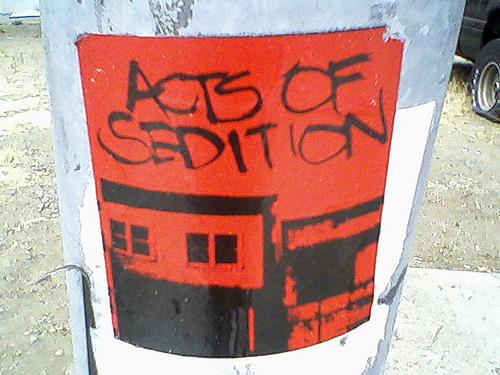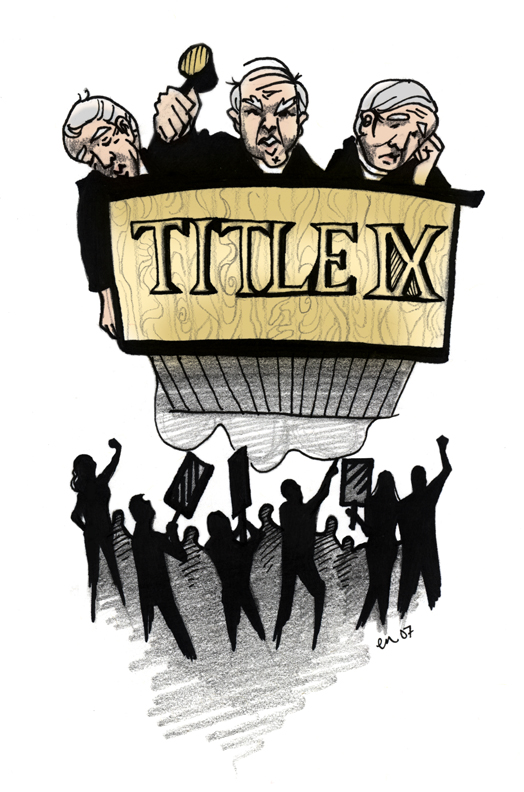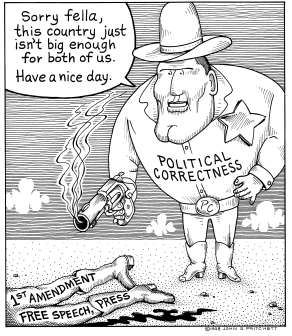The United States: Forgetting What History Can Teach Us
The United States: Forgetting What History Can Teach Us
Think back to your U. S. History class and think about what you learn about the Sedition Act. I think you just smiled and told me you don’t remember anything about it or just that you know it deals with espionage. So let’s review what the Sedition Act involves.
“An act for the punishment of certain crimes against the United States.” Approved July 14, 1798. Wikipedia lists it as:
SECTION 1. Be it enacted by the Senate and House of Representatives of the United States of America, in Congress assembled. That if any persons shall unlawfully combine or conspire together, with intent to oppose any measure or measures of the government of the United States, which are or shall be directed by proper authority, or to impede the operation of any law of the United States, or to intimidate or prevent any person holding a place or office in or under the government of the United States, from undertaking, performing, or executing his trust or duty: and if any person or persons, with intent as aforesaid, shall counsel, advise, or attempt to procure any insurrection, riot, unlawful assembly, or combination, whether such conspiracy, threatening, counsel, advice, or attempt shall have the proposed effect or not, he or they shall be deemed guilty of a high misdemeanour, and on conviction before any court of the United States having jurisdiction thereof, shall be punished by a fine not exceeding five thousand dollars, and by imprisonment during a term of not less than six months, nor exceeding five years; and further, at the discretion of the court, may be holden to find sureties for his good behaviour, in such sum, and for such time, as the said court may direct.
SECT. 2. And be it further enacted, That if any person shall write, print, utter, or publish, or shall cause or procure to be written, printed, uttered, or published, or shall knowingly and willingly assist or aid in writing, printing, uttering, or publishing any false, scandalous and malicious writing or writings against the government of the United States, or either House of the Congress of the United States, or the President of the United States, with intent to defame the said government, or either House of the said Congress, or the said President, or to bring them, or either of them, into contempt or disrepute; or to excite against them, or either or any of them, the hatred of the good people of the United States, or to stir up sedition within the United States; or to excite any unlawful combinations therein, for opposing or resisting any law of the United States, or any act of the President of the United States, done in pursuance of any such law, or of the powers in him vested by the Constitution of the United States; or to resist, oppose, or defeat any such law or act; or to aid, encourage or abet any hostile designs of any foreign nation against the United States, their people or government, then such person, being thereof convicted before any court of the United States having jurisdiction thereof, shall be punished by a fine not exceeding two thousand dollars, and by imprisonment not exceeding two years.
SECT. 3. And be it further enacted and declared, That if any person shall be prosecuted under this act for the writing or publishing any libel aforesaid, it shall be lawful for the defendant, upon the trial of the cause, to give in evidence in his defence, the truth of the matter contained in the publication charged as a libel. And the jury who shall try the cause shall have a right to determine the law and the fact, under the direction of the court, as in other cases.
SECT. 4. And be it further enacted, That this act shall continue and be in force until the third day of March, one thousand eight hundred and one, and no longer: Provided, That the expiration of the act shall not prevent or defeat a prosecution and punishment of any offence against the law, during the time it shall be in force.
We just passed the 216th anniversary year of this Act. With any law, rule or act, they are there to improve the country and many expect it to change the spectrum of the country. But let’s face it, we have learned NOTHING.
The History Channel has been providing stories dealing with the Sedition Act all week.
The story begins with the prosecution of Samuel Jordan Cabell, an event that prompted Thomas Jefferson to set down on paper the principles of nullification in the Kentucky Resolutions. Cabell was a congressman representing Thomas Jefferson’s home district in Virginia. In May 1797, a grand jury returned a presentment of libel against Cabell (incidentally, as a delegate to the Virginia ratifying convention, Cabell voted against ratification of the Constitution). What was Cabell’s crime? He sent a letter to constituents criticizing the administration of John Adams. That’s it. That was the sum of his seditious plot. A letter to voters in his district calling out some act of the president with which he disagreed. For this effrontery to his authority, John Adams charged Cabell with “endeavoring at a time of real public danger to disseminate unfounded calumnies against the happy government of the United States.”
Are you paying attention? Does this sound like today? This could have happened last week according to the way it is written. It’s probably because we live in a time when the three branches of the federal government have managed to place themselves above reproach and above the law.
To help them reach that lofty perch, public schools and media have trained generations of Americans to believe that we must look to Washington, D.C. for our salvation. If the federal government ignores the plea, we must meekly accept the decision without question, especially when the Supreme Court rules that the federal position is now “settled law.”
This is not new as it has been going on for over 200 years.
Remember, “we the people”






